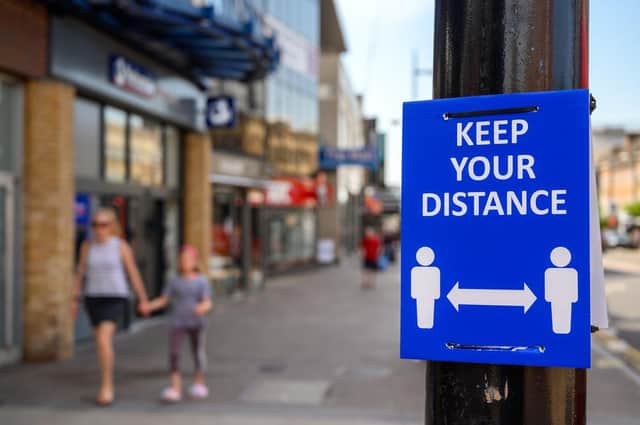The Big Conversation: Over a third of Brits have suffered worse mental health since the pandemic began


Employees have moved to working from home en masse, meeting up with over six people is now a crime enshrined in law and face mask wearing is mandatory in much of the public sphere.
All these changes have uprooted and altered many people’s attitudes, priorities and lives, which is why we asked readers across the country about what’s changed for you in our Big Conversation survey.
Advertisement
Hide AdAdvertisement
Hide AdThe Big Conversation survey was created by JPI Media; publisher of newspapers and websites across the UK including The Scotsman, Yorkshire Post, The Star (Sheffield), The News (Portsmouth), Edinburgh Evening News, Sunderland Echo, Lancashire Post, Yorkshire Evening Post and Belfast News Letter.
The survey looked at a range of issues surrounding the pandemic, including changes to personal lives, travel habits, health, employment, local life and fears and hopes for the post-pandemic world.
Getting out and about
City and town centres have suffered as a result of the pandemic, with a sustained drop in footfall even after March lockdown restrictions were lifted.
This is reflected in answers from respondents, with the majority saying they have visited their town or city centre “less” (22.21 per cent) or “a lot less” (39.90 per cent) than they did prior to lockdown.
Advertisement
Hide AdAdvertisement
Hide AdJust 2.65 per cent said they are visiting “more”, and 1.01 per cent “a lot more”.
In terms of confidence in venturing out of the house, “visiting beaches, parks and green spaces” is an activity that 83.93 per cent of respondents said they feel either “comfortable” or “very comfortable” doing.
This stands in contrast to “going on holidays or short breaks in the UK”, which just 9.65 per cent feel “very comfortable” with, and 11.81 per cent “comfortable” with.
Visiting friends and family was an activity most felt comfortable with doing, with 36.98 per cent saying they feel “very comfortable” visiting friends and family, and 39.65 per cent saying they feel “comfortable” with the idea.
Advertisement
Hide AdAdvertisement
Hide AdConfidence in taking public transport is low, with 72.26 per cent of respondents saying they feel either “not comfortable” or “not at all comfortable” with it.
Respondents were unsure how confident they felt sending their children back to school, with the majority - 44.62 per cent - saying they didn’t know or weren’t sure how comfortable they felt with the idea.
Personal life
Respondents voted “visiting family” as the most important activity for a good quality of life - either pre- or post-pandemic - with 77.35 per cent saying this was important to their personal quality of life.
Eating at cafes/restaurants was a fairly close second, with 63.22 per cent of respondents saying this was important to their personal quality of life.
Advertisement
Hide AdAdvertisement
Hide AdOver 50 per cent - 50.61 per cent - of respondents said going on a holiday or short break in the UK was important to their quality of life.
Over half of respondents have become more thrifty since the pandemic began, with 54.87 per cent saying they’ve cut back on spending.
And while the High Street may have suffered from a drop in footfall, many local businesses have done well as a result of the crisis, with 48.90 per cent of respondents saying they are supporting local businesses more than they once were.
Getting online
Most respondents believe they’ve adapted to the move of many activities online well, with 47.85 per cent saying they’ve adapted “very well” and 38.16 per cent saying they’ve adapted “fairly well”.
Advertisement
Hide Ad